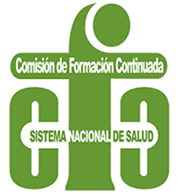



Dear Colleagues & Friends,
It’s a great pleasure – as Director – to announce you the 5th Edition of the International Symposium on Translational Research on Acute Lung Injury (INSPIRES) that will be which will take place from November 17-18, 2022 in the Hospital Universitario de Getafe, Madrid, Spain.
Considering, the inputs from all 2019 attendees, partners and faculty members, we have developed a Programme which you will find in the web site section. As Committee members, we would like to stress, once again, the importance of participants’ contribution for the success of the initiative. Therefore, considering the limitation in dialogue and mutual cultural exchanges in this last period, even more time will be devoted to discussion, in a face-to-face interaction and contribution from the audience.
The Scientific Programme has been designed to face all the challenges, hot topics and emerging issues of the not only in the Respiratory field in the critically ill patients admitted in the ICU but also key aspects of translational research in the Critical Care.
As in the past 4 years, one of our advocacy goal are the initiatives dedicated to Junior Clinicians and Researchers, who will be protagonists of the 2022 edition as well. INSPIRES will undergo some important remodeling, with the aim of becoming an international “Hub&Lab” for research in critical illness, in order to stimulate the development of new projects delineated by the youngest researchers and evaluated by the plenary room and an experts’ panel. Furthermore, the year by year success of the INSPIRES, encourages us to pursue this activity giving the opportunity to young clinicians and researchers to present their valuable work, in front of an international audience, and become for the first time part of the Congress faculty.
We look forward to consolidate the existing cooperation with national and international associations for the promotion of the meeting as well as the increase of the initiatives dedicated to the younger ones, strengthening the promotional efforts and opportunities within the whole potential stakeholders.
We look forward to welcoming you in Madrid!
Yours Sincerely,
Óscar Peñuelas,
Director of INSPIRES, On behalf of Scientific Committee.
Organization:
Director: Óscar Peñuelas.
Scientific and Organizing Committee:
John Laffey.
Nicole Juffermans.
Oscar Peñuelas.
Marcus J. Schultz.
José Ángel Lorente.
Guest Faculty:
| Name | Center, City, Country |
|---|---|
| Nicole Juffermans | AMC, Amsterdam |
| John Laffey | Galway, Ireland |
| Hector Gonzalez | Galway, Ireland |
| Lorenzo del Sorbo | Toronto, Canada |
| Patricia Rocco | Rio de Janeiro, Brazil |
| Bruno Pinheiro | Juiz da Fora, Brazil |
| Wolfgang Kuebler | Berlin, Germany |
| Fernando Suarez Sipman | Madrid, Spain |
| Guillermo M. Albaiceta | Oviedo, Spain |
| Laura Amado-Rodríguez | Oviedo, Spain |
| Gerard Curley | Dublin, Ireland |
| Ferrán Barbé | Lleida, Spain |
| David de Gonzalo-Calvo | Lleida, Spain |
| Elisa Zanier | Milano, Italy |
| Gloria Vegliante | Milano, Italy |
| Ilaria Lisi | Milano, Italy |
| Lieuewe Bos | Amsterdam, The Netherlands |
| Leonoor Boers | Amsterdam, The Netherlands |
| Oriol Roca | Barcelona, Spain |
| Javier García | Madrid, Spain |
| Marcus Schultz | Amsterdam, The Netherlands |
| Laura Buiteman-Kruizinga | Amsterdam, The Netherlands |
| Marcelo Gama Abreu | Dresden, Germany |
| Raquel Herrero | Getafe, Madrid, Spain |
| Marco Ranieri | Rome, Italy |
| Vito Fanelli | Turin, Italy |
| Martin Scharffenberg | Dresden, Germany |
| Jakob Wittenstein | Dresden, Germany |
| Paula Martín Vicente | Oviedo, Spain |
| Pedro Leme Silva | Rio de Janeiro, Brazil |
| Alberto Pueyo Rabanal | Madrid, Spain |
| Lucas Hoyos Mejía | Madrid, Spain |
| Pieter Sloos | Amsterdam, The Netherlands |
| Daan van de Brink | Amsterdam, The Netherlands |
| Gema Sanchez | Getafe, Madrid, Spain |
| Jessica Gonzalez | Lleida, Spain |
| Grace Hogan | Dublin, Ireland |
| Laura Michalick | Berlin, Germany |
| Szandor Simmons | Berlin, Germany |
| Lídia Maria Carneiro Fonseca | Juiz da Fora, Brazil |
| Lorenzo Ball | Genova, Italy |
| Robert Huhle | Dresden, Germany |
Scope:
Preclinical models cannot fully replicate clinical heterogeneity in the critically ill pa-tient, but they remain useful to advance precision medicine for critically illness by enabling: understanding of specific biological processes; identification of key nodes in pro-injury and pro-resolution pathways; introduction of controlled heterogeneity to elucidate differential activation in mechanistic pathways; and use of reverse translation research of clinical findings to help identify key biological drivers for therapeutic targeting. In addition, reverse translation research might also have an important role in understanding why some promising candidate treatments are not beneficial in human clinical trials.
Several areas of uncertainty remain regarding the best path forward to advance precision medicine in critically illness. These key unanswered questions form a foundation for future areas of research. The impetus to develop and advance precision medicine strategies is clear. Deeper understanding of key nodes in mechanistic pathways established through rigorous preclinical studies and well-designed observational cohorts, paired with innovative trials designed to test for sources of heterogeneity that influence treatment responsiveness, will accelerate discovery of targeted therapies to reduce morbidity and mortality for critically ill patients.
Concerted coordination across the research community will be required to achieve this precision medicine vision. Mechanistic preclinical studies, translational clinical cohort studies, and randomised trials fulfill intertwined roles in understanding mecha-nisms, prognostic relevance, and therapeutic implications of heterogeneity in critical illness.
Sponsors:
Silver
Bronze

- Date: November 17-18, 2022.
- Venue: Hospital Universitario de Getafe. Getafe, Madrid, Spain.
- Place: ASSEMBLY HALL, ground floor, Hospital Universitario de Getafe.
- Registration fee: 350 € (300 € for members of endorsed societies).
Accreditation
Activity accredited by the Commission for Continuing Education of the Health Professions of the Community of Madrid-National Health System”, SPAIN, with the file number 07-AFOC-02808.1/2022 and the number of credits granted in the certificates of attendance/use of participants is 2.1 credits.











